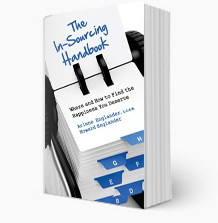The pandemic nears its end. The mandatory mask requirement has been lifted. With a sigh of relief we look forward to returning to normal.
But something strange is occurring; what was so familiar and taken for granted a year ago, is ‘off’ somehow, slightly blurred; as if the ground has shifted. Things appear the same, but they’re not!
The pandemic has changed us. We see and respond to events with a changed perspective. We do things differently, considerably so in some cases.
Sequestered in our homes, we adapted to new modus operandi for the simplest of exercises that formerly made up our routine. A bump of the elbow in lieu of a hug? Insta-cart instead of visiting the grocery store! We had to adapt because there was no other option.
The touch point was the recognition that life is not a given. We could not ignore the growing trend line that climbed to 600,000 dead from the Covid-19 virus. A dreaded reality was in the room with us: life could end in an instant.
How did you respond? How did you deal with the heaviness of suspended time, boredom and loneliness? What was your way of facing the underlying fear? When you felt vulnerable did you allow yourself to ask for help or bluster it away? Perhaps more to the point, are you still feeling the residual effects of a year under the bed?
It’s important to look at your response to the year that was. What you learn from the review can make for positive changes in the year that waits.
Perhaps you’ll recall how trivial things, formerly ignored, became intimate moments that nurtured you. Today you’re most likely comfortable using Zoom but remember mastering the program and regaining touch with the value of human relationships; friendships going from timeworn to actively tuned in via Facetime. Then again, for some, the entire year may be a blur.
For all its horrors, the pandemic gave many of us a gift. We no longer took love for granted. We learned new ways to express, “I love you.”
I am reminded of the Taoist parable of the Chinese farmer that tells people not to get too upset or attached to what happens to us, for even something that seems dark and confounding can turn out to be an opportunity.
The farmer gives a horse to his son, who rides it, then is thrown and badly breaks his leg. “So sorry for your bad news,” says the concerned neighbor. “Good news, bad news, who can say?” the farmer replies. A week later the emperor’s men come and take every able-bodied young man to fight in a war. The farmer’s son is spared. Good news, of course.
It speaks to the truth that we never know what gifts will follow “bad news,” and encourages us to take both good and bad as simply what happens in life. We have a choice of the attitude and character we bring to the fore in the face of the trials that test us.

